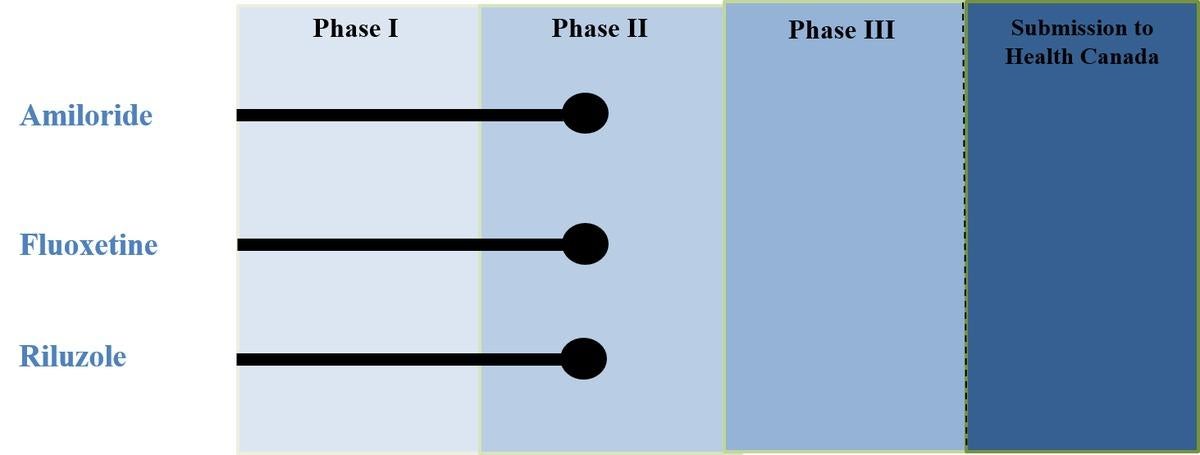Overview:
The Multiple Sclerosis-Secondar Progressive Multi-Arm Randomisation Trial ( MS-SMART) is a UK based initiative aimed at examining the efficacy of three drugs in treating progressive MS. The three drugs under study are currently used for treating other conditions and their investigation in treating progressive MS is an example of drug repurposing.
Amiloride (Midamor): Currently used as a drug to treat high blood pressure and heart disease. It is suggested that Amiloride may exert neuroprotective effects in MS by reducing the levels of sodium and calcium that are able to pass through the neuronal membrane and cause damage to axons. A pilot study of 14 people revealed promising findings. Participants administered Amiloride showed a reduction in brain shrinkage compared to what was experienced prior to treatment. However, definitive conclusions cannot be drawn from such a small experimental group.
Fluoxetine (Prozac): Currently used as a drug for treating depression. Fluoxetine is one of a class of drugs called selective serotonin reuptake inhibitors (SSRIs). Fluoxetine is thought to protect against the loss of nerve cells – a mechanism believed to underlie the progressive MS disease process – by enhancing the production of certain brain molecules necessary for maintaining nerve cell health. To date, two small trials have been conducted investigating the efficacy of fluoxetine in MS. In one study in 40 participants showed that fluoxetine significantly reduced the rate of relapses and new brain lesions in people living with relapsing-remitting MS compared to placebo. In a second study in people with progressive forms of MS, there was a non-significant trend towards reduced disability progression as measured by EDSS and improved performance on the 9 Hole Peg Test compared to placebo. These studies were too small to draw definitive conclusions.
Riluzole (Rilutek): Currently used as a drug for treating motor neurone disease. Riluzole is a glutamate receptor blocker. Excessive glutamate release can damage neurons. Inhibiting glutamate release could help prevent damage in MS. A small pilot study of 16 people investigated the neuroprotective effect of Riluzole. Results were inconclusive. Future studies are planned.
MS-SMART is a randomized, blinded, placebo-controlled phase II clinical trial that is testing the three drugs in 440 participants with secondary progressive MS. The primary endpoint of the trial is to determine if one or more of the drugs can slow the rate of brain volume loss (shrinkage) compared to placebo over 96 weeks using magnetic resonance imaging (MRI). The trial will also investigate a number of secondary endpoints, including changes in the number of new or enlarging brain lesions, several measures of neuroprotection, as well as health economic data to help inform future phase III trials. The trial is projected to be completed in the summer of 2018.
